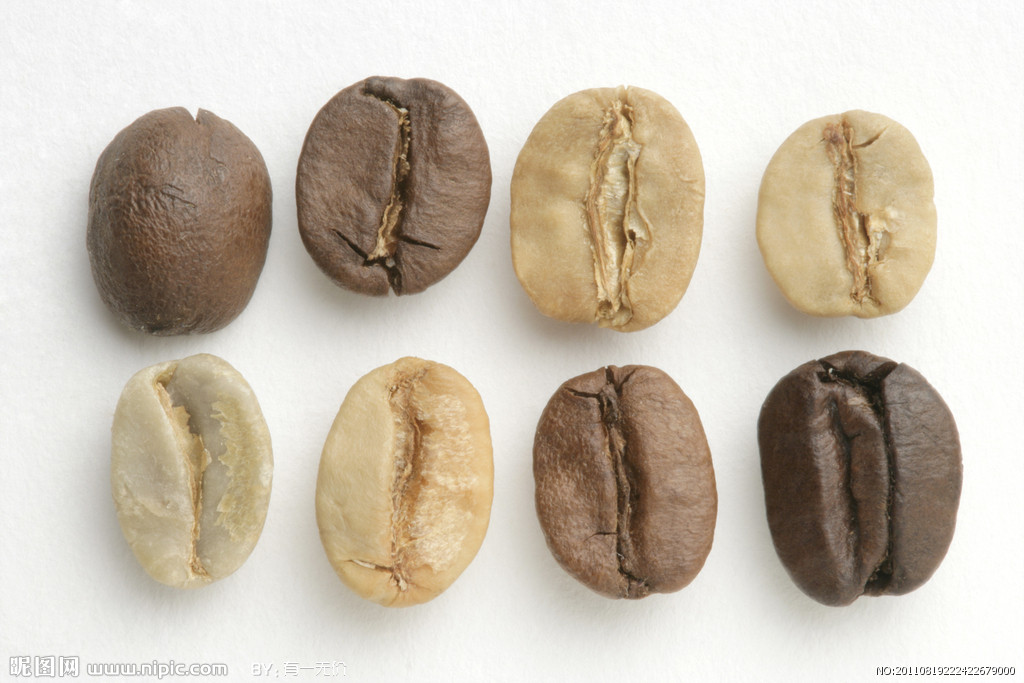The god of poetry, Lambo, abandoned the article to do coffee business in Egypt, boutique coffee beans, Ethiopian flavor.
Ethiopia is mainly a wild coffee forest, want to chew coffee fruit or drink coffee, go into the forest to pick, so there was no coffee cultivation in ancient Ethiopia. Yemen had a large-scale coffee cultivation industry and coffee trade with Europe as early as the 15th and 16th centuries, and Ethiopia did not have a record of coffee trade until the 19th century. In 1838, Ethiopia exported the first ten tons of coffee beans to London, Marseilles and New York through the Red Sea port capital Massawa, known as "Haralmoka" because the Yemeni mocha came from the Ethiopian Harald long-bodied bean "Harrar Longberry" (basically, the flavor of Harald beans is very similar to that of Mocha). After the Yemeni mocha, Ethiopia has become a mecca for European coffee brokers panning for gold. The ancient city of Harald, located in the eastern highlands, close to the Red Sea and the Gulf of Aden, and rich in coffee, has naturally become an outpost for Europeans to know Ethiopian coffee. Rambo, the French god of poetry in the 19th century, abandoned literature to go into business and went to Harald to buy and sell coffee, adding a page of romance and sadness to the entanglement between literature and coffee.
Why the courageous Lambo abandoned his reputation in the literary world and ventured into Harald comprador coffee alone is still a mystery in the literary world. Rambo is regarded as the greatest poetry genius in France in the 19th century. He began to write poems at the age of 13 and published his work "drunken Boat" at the age of 17, which won the appreciation of the great French symbolist poet Verren at that time and invited him to his residence in Paris. Despite the success of his youth, Lambo was not sentimentally attached to the lights and booze of Paris. He closed his pen at the age of only 20 and decided to go into self-exile and wander around the world to look for opportunities to earn fruit. At the end of the 19th century, coffee consumption in Europe increased greatly, and Lambo was optimistic about the boundless "money scene" of coffee selling. instead, he pursued the plot of "Hell season" and went to a country where he "lost his climate" to exercise his physique. I hope that one day he will return home triumphantly with "steel ribs, copper skin, and sharp eyes." Traveling through Indonesia, Cyprus and Yemen, he settled in the ancient Ethiopian city of Harald, which is 1830 meters above sea level in 188, to handle the Harald coffee bean business for a French company stationed abroad, that is, today's coffee broker. Rambo was the first coffee purchasing expert in Europe who knew everything about the grade, bargaining and quality of coffee beans. He lived in Harald for eight years. The climate here is cool and more suitable for him than muggy Yemen. In addition to coffee, Lambo also engaged in arms, fur import and export business, and became an outstanding businessman, completely leaving literature behind. Since ancient times, many literati have been infatuated with coffee, but the only one who dared to go deep into the producing area to try their skills was Lambo.

Important Notice :
前街咖啡 FrontStreet Coffee has moved to new addredd:
FrontStreet Coffee Address: 315,Donghua East Road,GuangZhou
Tel:020 38364473
- Prev

Arabica coffee originated in Ethiopia, China Coffee Network charcoal roasted coffee.
Ethiopia is a coffee-producing country with many legends, numerous varieties, rich orange fragrance and many fresh things, and there is no second country in the world that can compete with it. Ethiopia's long coffee history and cultural scenery have attracted a large number of explorers, archaeologists, botanists, anthropologists and writers to Fangze. The sleeping lion of Africa suddenly awakened after the millennium.
- Next

Ethiopia builds "Rainbow House" in memory of Rambo Yega Xuefei China Coffee Trading Network
Rambo made a small fortune with Harald Coffee, while Harald became famous for Rambo's stop, but does he really like Harald Coffee? I'm afraid coffee fans are disappointed. According to his letters to friends, he once described Harald coffee as a horrible, abominable, disgusting stink! But it would be arbitrary to assert that Rambo doesn't like Harald coffee, because he may have been
Related
- Does Rose Summer choose Blue, Green or Red? Detailed explanation of Rose Summer Coffee plots and Classification in Panamanian Jade Manor
- What is the difference between the origin, producing area, processing plant, cooperative and manor of coffee beans?
- How fine does the espresso powder fit? how to grind the espresso?
- Sca coffee roasting degree color card coffee roasting degree 8 roasting color values what do you mean?
- The practice of lattes: how to make lattes at home
- Introduction to Indonesian Fine Coffee beans-- Java Coffee producing area of Indonesian Arabica Coffee
- How much will the flavor of light and medium roasted rose summer be expressed? What baking level is rose summer suitable for?
- Introduction to the characteristics of washing, sun-drying or wet-planing coffee commonly used in Mantenin, Indonesia
- Price characteristics of Arabica Coffee Bean Starbucks introduction to Manning Coffee Bean Taste producing area Variety Manor
- What is the authentic Yega flavor? What are the flavor characteristics of the really excellent Yejasuffi coffee beans?

